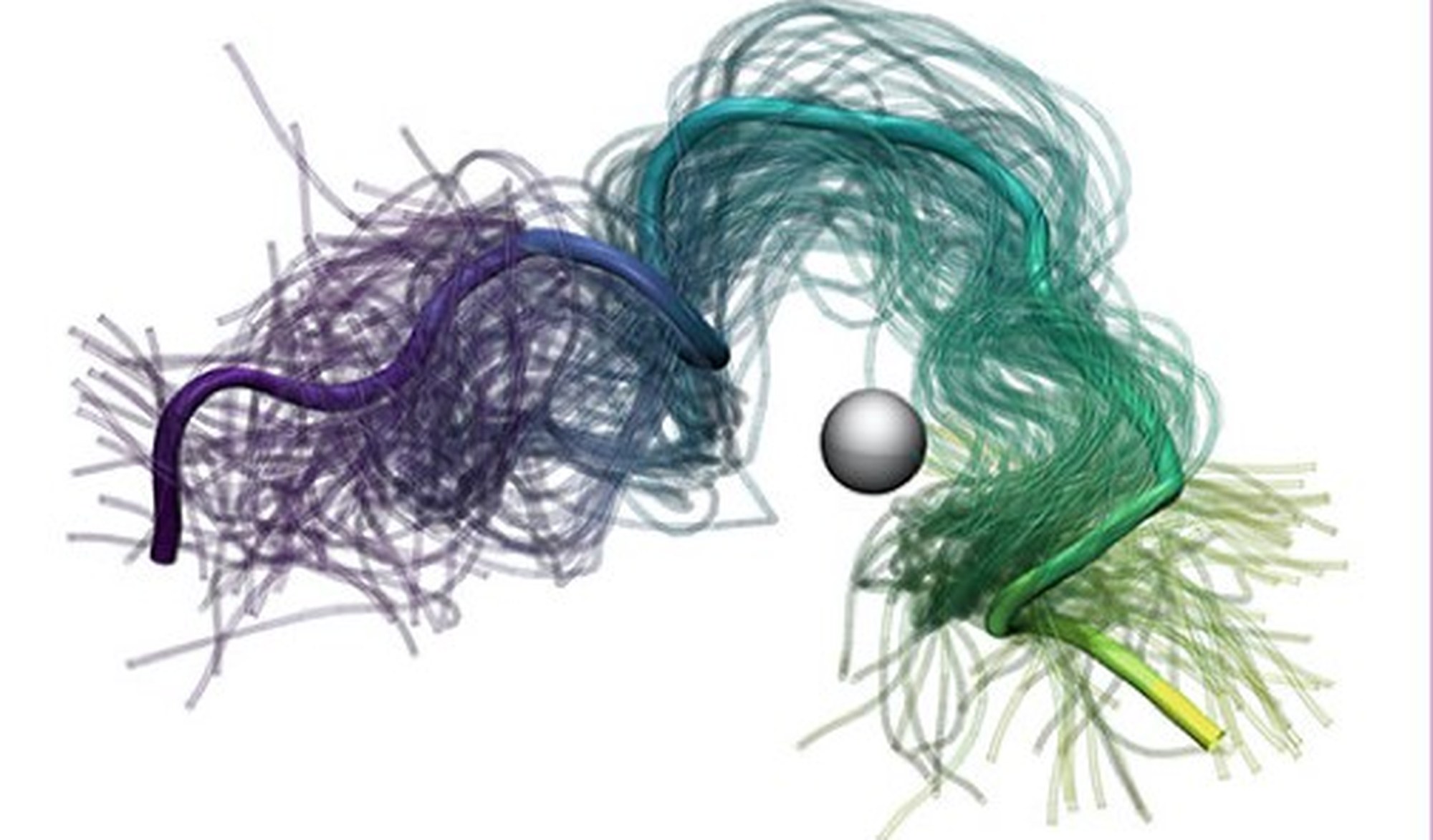Molecular Dynamic Simulations of Intrinsically Disordered Proteins

Internship
Type of Project: Theory Project
Location: Donostia
Supervisors:
Xabier Lopez
David de Sancho
Intrinsically disordered proteins (IDPs) are characterized by their inability to fold into well-defined three-dimensional structures under physiological conditions, instead adopting diverse conformational ensembles. Although largely overlooked prior to the year 2000, IDPs have gained significant prominence in the last two decades, challenging the conventional sequence-structure-function paradigm in molecular biology. Their importance became evident with the realization that they constitute up to one-third of the eukaryotic genome.
IDPs have brought about a revolution in protein science methodologies, impacting both experimental and modeling approaches. Molecular dynamics (MD) simulations, employing specific force fields parameterized for IDPs, have played a pivotal role in elucidating the ensemble of structures accessible to these proteins under physiological conditions. This knowledge is crucial for understanding their biological activities, such as in signaling and binding processes. MD simulations have also contributed to deciphering supramolecular behaviors, including irreversible fibrillar aggregation (e.g., tau protein, Aβ, or α-synuclein) and the formation of condensates through reversible aggregates leading to liquid-liquid phase separation (LLPS), as seen in low complexity, aromatic-rich, kinked segments (LARKS).
The current project aims to equip the student with the skills needed to simulate IDPs using cutting-edge quantum and classical computational methods. Specifically, the student will master the execution of molecular dynamic simulations (utilizing the GROMACS package) for selected IDPs, aiming to characterize the conformational sampling of these systems. Central to understanding the complexity of IDPs are the molecular driving forces, which will be investigated computationally. Quantum mechanical methods will be employed to identify and rationalize specific interactions between residues (e.g., pi-pi, cation-pi), crucial for comprehending the overall behavior of these systems.
The student will be part of the BioKT research line (https://sites.google.com/view/biokt), affiliated with the Theoretical Chemistry group (https://www.ehu.eus/chemistry/theory/).
